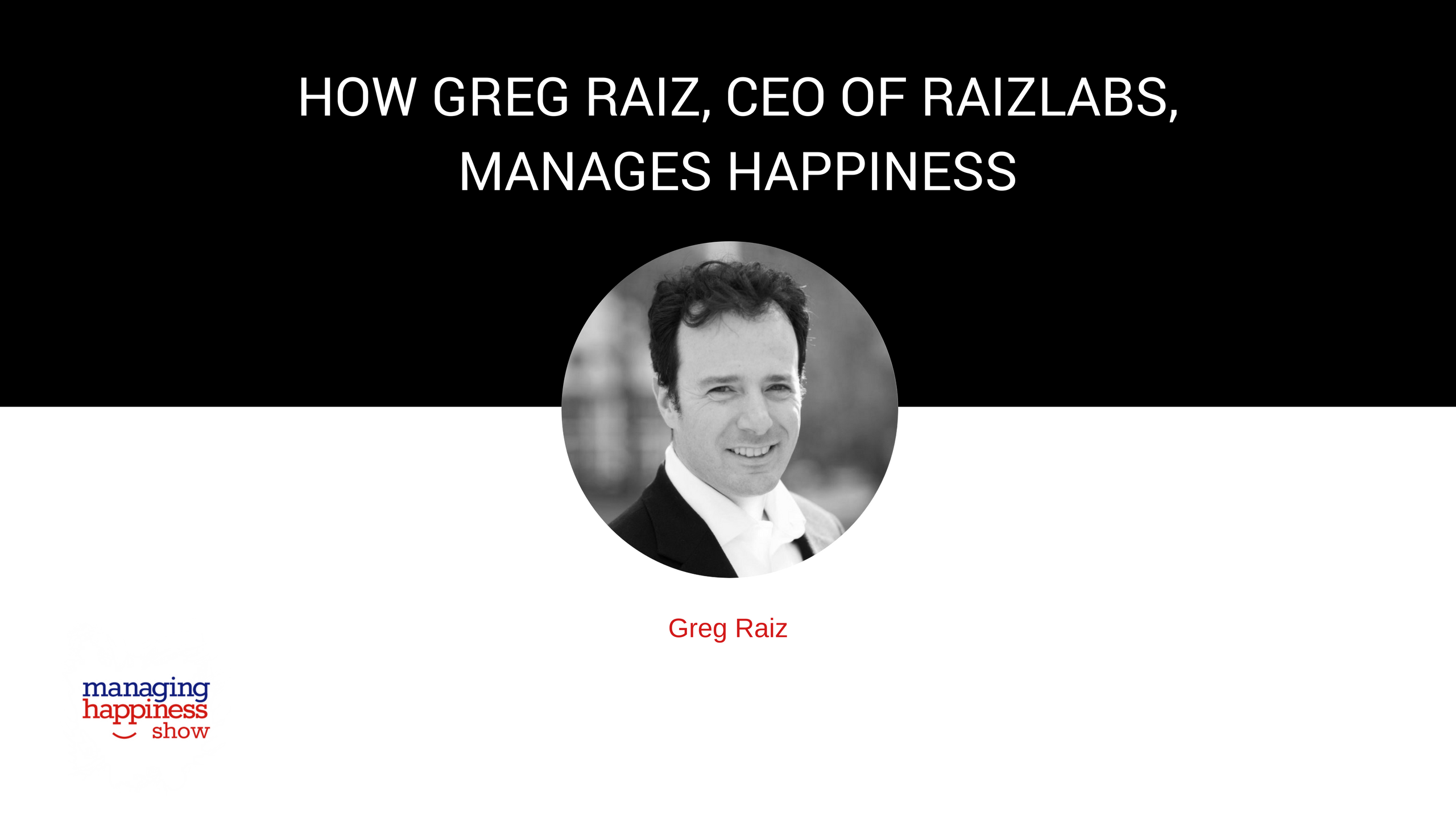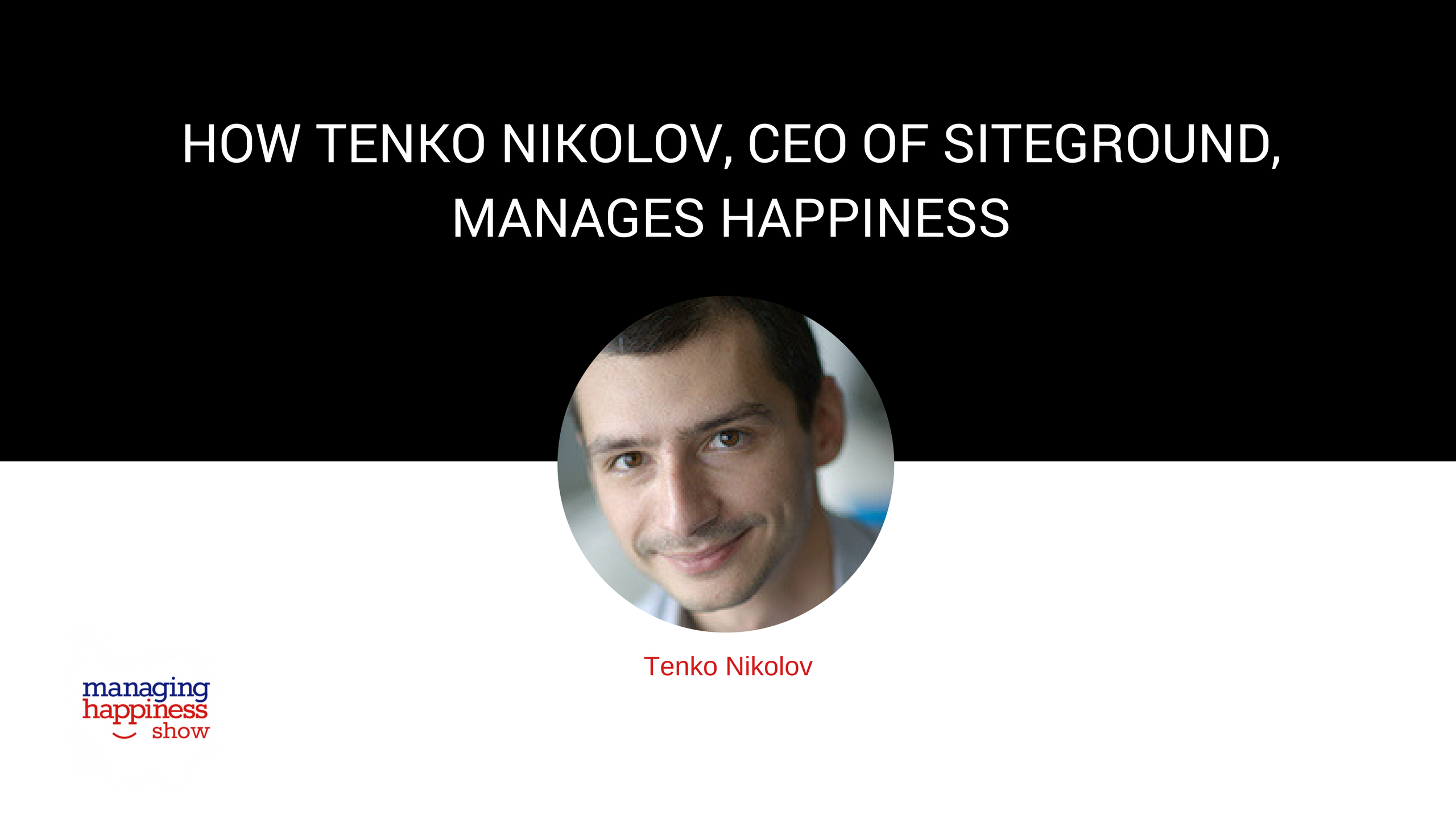Powered by RedCircle
EPISODE 9 of the Managing Happiness Show!
Greg Raiz is the founder and CEO of Raizlabs, a web and mobile app development company with a focus on user experience. Greg is a passionate UX designer and a well-known figure in the design and mobile community. He is the founder of DrinksOnTap and a great supporter of AltConf. He is married and has two daughters.
About Greg Raiz
Greg Raiz founded Raizlabs in 2003 with a vision to improve lives through technology and design. The company has grown substantially over the last decade and is viewed as a leader in the Boston and San Francisco technology, web, and mobile communities.
Greg started his career as a Program Manager on Windows XP. In 2003, he quit his job and started Raizlabs – a development company with the mission to build awesome software. The company hit its stride in 2007 with the launch of Apple’s iPhone. When its first app rose to the top of the AppStore’s charts, Raizlabs secured its place on the industry map.
Greg is happily married and has two daughters who are 5 and 9 years old.
Vision, mission, and values
Prior to starting Raizlabs, Greg was a Product Manager at Microsoft. There he learned a lot about the methodology and processes needed to create great software products. Looking at the industry, he saw that most companies didn’t have that knowledge and put out low quality. That’s why, when he quit his job, he embraced the mission to make a positive impact in the world through better software and technology.
First, he started working on his own software products from a coffee shop. It took him around 2 years to figure out the right business model and get a co-founder on board. Gradually, his team grew and they started getting more and more projects from clients.
Greg shares that Raizlab’s mission and vision have evolved over the years. The early mission/vision of the business was simply to make software that didn’t suck. Over time, the team would question the “Why” of their business and this would add a higher level of purpose to their work.
The first time we asked the question “Why do we make software that doesn’t suck?”, the answer was “because we want to focus on usability and simplicity, and we think that software should be easy, intuitive, remove friction and should help”.
By asking the question “Why?”, Greg’s team discovered that their main motivation was to improve people’s lives.
Raizlab’s company values are closely related to its mission and vision. The company strives for Excellence; the team is empowered to take Initiative; the work should have a positive Impact for the users; all of the above are possible through their effective Teamwork.
As a result, Greg and his team have integrated their mission, vision, and values in the core company processes such as hiring, business development, performance management and more.
Adding features vs. building great products
Greg believes that building amazing software is not about having the best algorithm, the best design or tons of features. It’s about launching meaningful products which are easy to use and help people in their day-to-day lives.
There’s more software being developed now than ever before in history. The question is how we build better software, not more software.
Features are great, but adding more of them will not make the product better. Normally, they don’t influence a company’s NPS or the overall customer success. According to Greg, they are more of a tool for salespeople to sell against competitor features, rather than an instrument to add value.
When I use a products that’s fantastic, it’s usually because they get the details right of something that everyone else has the same features but they didn’t get the details right.
Being a leader at home and at work
Being a successful entrepreneur and a good husband and father is hard. No one has all the answers because each role requires different qualities. Greg admits that some elements of leadership are useful in business, but can’t be applied at home. For example, in business, it is a lot about winning and being right, while at home it’s more about creating a partnership and making compromises.
He recommends a book called The Five Dysfunctions of a Team by Patrick Lencioni. It made him change his communication style in the office and with his family in order to be more relevant. The book explores the fundamental causes of organizational politics and team failure and gives a lot of examples which can be applied to both personal and professional life.




